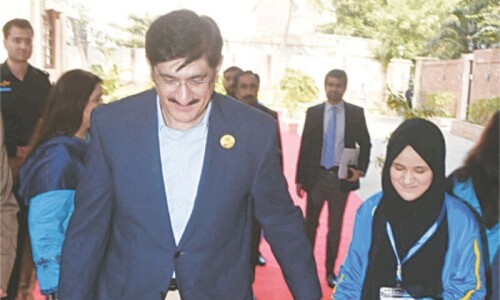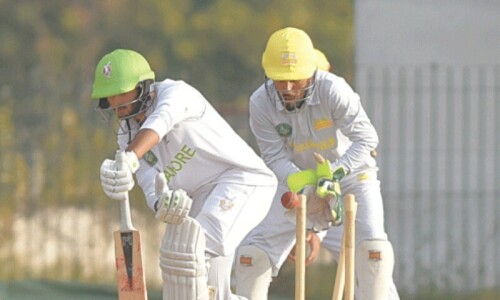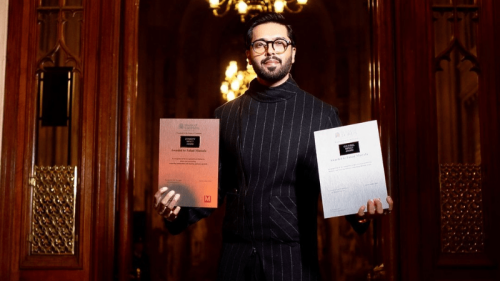KARACHI, June 25: Draconian media laws, use of brutal force against journalists and the impact of ‘corporatization’ and proliferation of the electronic media came under scrutiny on the second and last day of the two-day international conference on the role of media in the 1857 war of independence on Wednesday.
The conference concluded with the note that the role of journalism in the 1857 struggle cannot be overemphasized.
The seminar was organized by the Mass Communications department of the Federal Urdu University for Arts, Science and Technology (FUUAST).
In the context of the current state of the media in the subcontinent, it was pointed out that its growing corporatization had undermined the role and freedom of professional editors in deciding about editorial content. Growing commercial interests, monopolies, and abolition of the institution of professional editors and overriding influence of marketing executives was considered a threat to freedom of the press.
It was also pointed out that non-state actors have also threatened the freedom of expression in India as well as in Pakistan. The interference of intelligence agencies has also increased in media organizations, speakers said.
The religious leaders of the subcontinent played a very important role in the 1857 struggle, seasoned journalist Hussain Naqi said in his address after presiding over the third working session.
He said fatwas from the religious leaders brought the masses into the struggle. He said the freedom achieved in 1947 has not liberated the masses of the subcontinent.
Dr Khaleeq Anjum, Secretary Anjuman Taraqqi-i-Urdu Hind, appreciated the role of the press in the subcontinent. Mr Mehmood Ghaznavi, Chairman Department of Mass Communications, University of Karachi, said whatever press freedom we enjoy today is because of the great struggle of 1857.
Prof Nisar Zuberi, ex-chairman Department of Mass Communications at KU, said there is a long list of brave and bold journalists, from William Bolt to Minhaj Barna, in the subcontinent’s history.
The fourth working session was on “Socio-economic changes of the twentieth century and their impact on newspapers.” It was presided over by renowned historian Dr Mubarak Ali.
Mr Naresh Nadeem, Editor Shabtab, New Delhi, said newspapers were committed to a mission before independence. However, newspaper organizations are morphing into business entities, he said.














































Dear visitor, the comments section is undergoing an overhaul and will return soon.